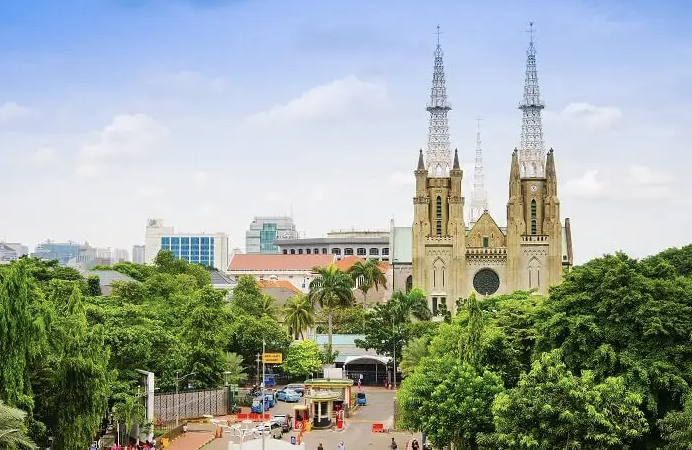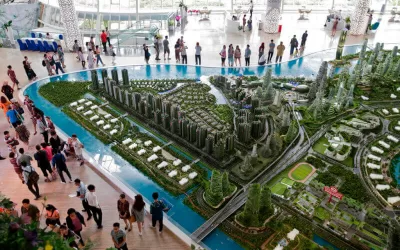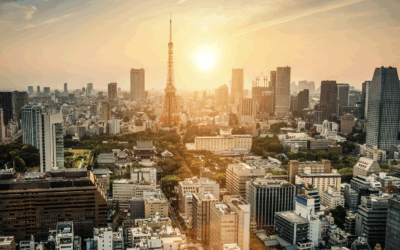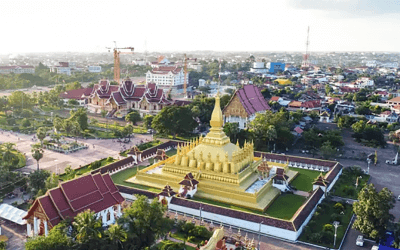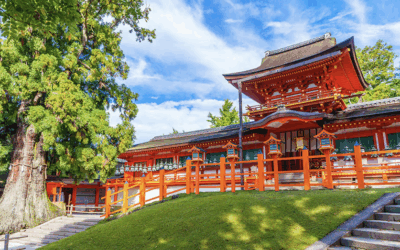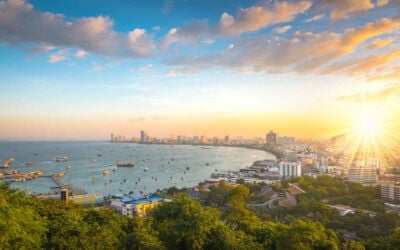Jakarta, the dynamic capital of Indonesia, has emerged as an intriguing destination for real estate investors seeking new opportunities in Southeast Asia.
With its rapid urbanization and continued population growth, Jakarta offers a rare combo of affordability and long-term growth potential.
Generally speaking, prices are lower here compared to other major Asian cities, although Jakarta’s real estate landscape is diverse, offering a range of options to suit various budgets and preferences.
One notable aspect of Jakarta’s property market is its affordability relative to other regional hubs in Southeast Asia.
For example, Jakarta’s average price per square meter is around $3,000 according to data from Bank Indonesia.
Upscale neighborhoods like Menteng can command prices around $700,000 for a condo, while more affordable options such as an apartment in Kebayoran Baru might be priced closer to at $100,000.
Jakarta’s property market is underpinned by the city’s role as Indonesia’s economic and political center, contributing nearly a quarter of the country’s GDP.
Top Neighborhoods in Jakarta
Buyers are spoilt for choice when it comes to all the different neighborhoods in Jakarta for living and investing.
Here’s an overview at some of the city’s most popular areas to invest. We also have a full article about Jakarta’s top neighborhoods which gives a more detailed analysis of prices, rental yields, and more.
Central Jakarta
Central Jakarta is the city’s downtown area, where property prices are among the highest in Indonesia.
Menteng and the Golden Triangle are two neighborhoods in Central Jakarta that are particularly popular among expats and upper-class locals.
The Golden Triangle, where three major roads (Jl. Sudirman, Jl. Rasuna Said, and Jl. Gatot Subroto) intersect, is lined with large office buildings and luxury apartments, making it a convenient location for expats working for multinational firms.
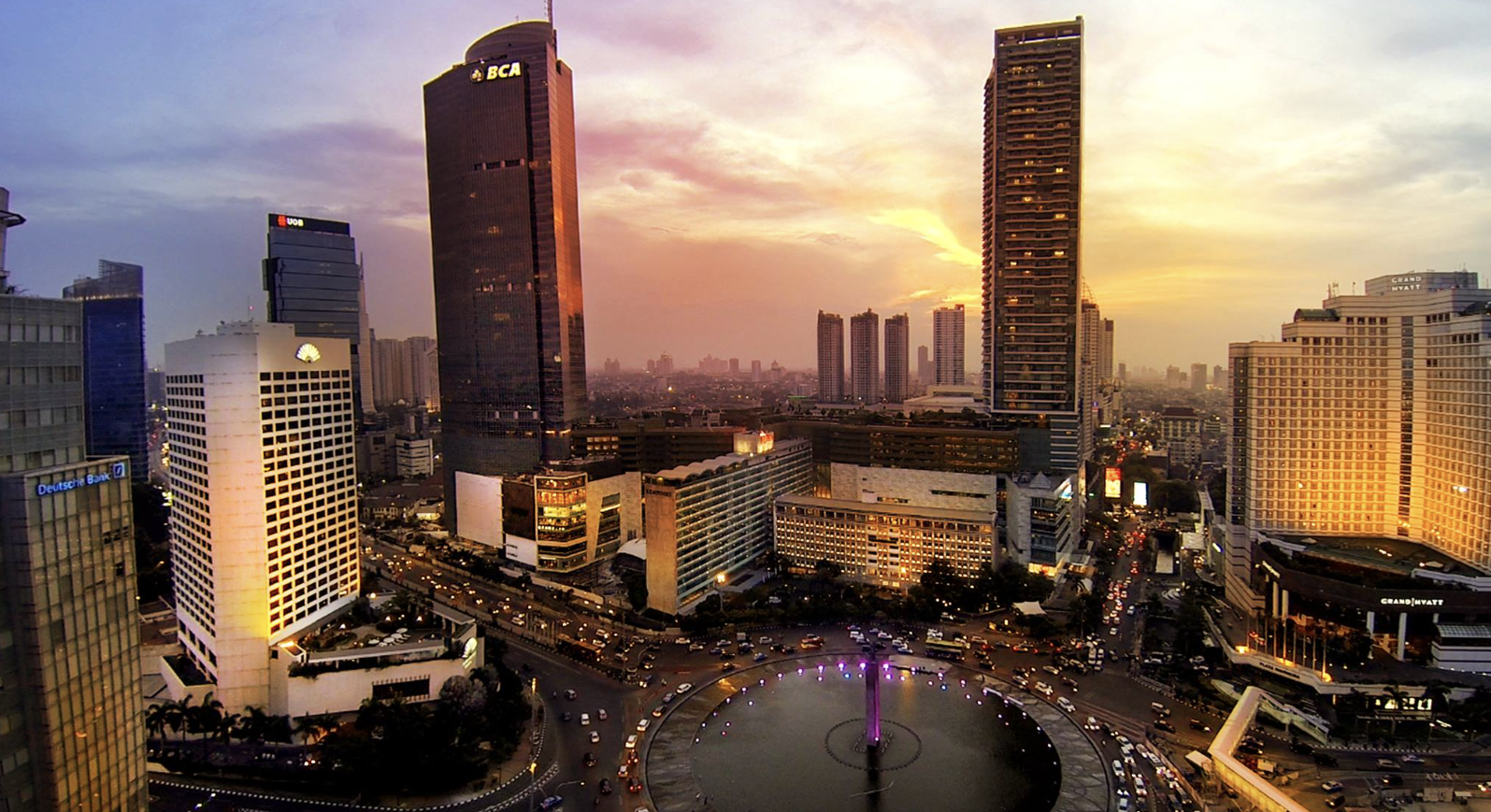
Central Jakarta is the most sought-after location for both locals and expats; the area is filled with office buildings, luxury malls and residences.
Menteng, an “old money” neighborhood, is both centrally-located and leafy, with countless embassies, villas, and colonial-era buildings.
Its prestigious reputation and central location make it one of Jakarta’s most sought-after addresses.
However, many houses in Menteng are historical landmarks, and government approval may be required before renovation or construction work can be carried out.
While Central Jakarta boasts excellent public transport and proximity to key attractions, it also comes with the challenges of high population density, heavy traffic, and steeper prices.
South Jakarta
South Jakarta is considered one of the best and most desirable places to live in the city, offering easy access to downtown, more space, less traffic, and a wide range of restaurants and stores.
Kebayoran Baru, one of the largest and most convenient neighborhoods in South Jakarta, straddles Central Jakarta and is close to major office buildings and malls. While it’s more commonly known for large houses, apartment buildings are also starting to pop up.
Kuningan, the closest neighborhood to Central Jakarta without actually being in the CBD, is another “old money” area with tree-lined streets and large villas.
However, properties in Kuningan can sometimes be in disrepair, despite retaining a stately appearance on the outside, so proper inspections are crucial.
Kemang, located further south, is not as convenient as other parts of South Jakarta, and flooding can be an issue.
However, it remains popular among expats due to its diverse restaurants, international facilities, and lower prices compared to the rest of South Jakarta.
South Jakarta’s high-end amenities and international schools make it an attractive choice, albeit with the trade-offs of higher costs and occasional traffic congestion.
East Jakarta
East Jakarta is the industrial center of the city, filled with factories and home to large manufacturers and the companies that support them, including suppliers and logistics firms.
For those not involved in the industrial economy, there is little appeal to living or investing in East Jakarta.
However, Kelapa Gading (or KG), an integrated community with schools, shops, hospitals, and more, is one township worth considering for those who do want to live in this area.
North Jakarta
Many people tend to avoid North Jakarta because of the district’s flooding, pollution, and distance from business centers and international facilities.
Central and South Jakarta are more convenient, West Jakarta offers a better suburban lifestyle, and East Jakarta is closer to the city’s industrial core, making North Jakarta a less attractive option for most.
Despite these issues, Pantai Indah Kapuk (PIK) has made a name for itself as an integrated community with residential and commercial zones, housing estates, schools, and even a golf course, making it one of North Jakarta’s few areas suitable for expat family living.
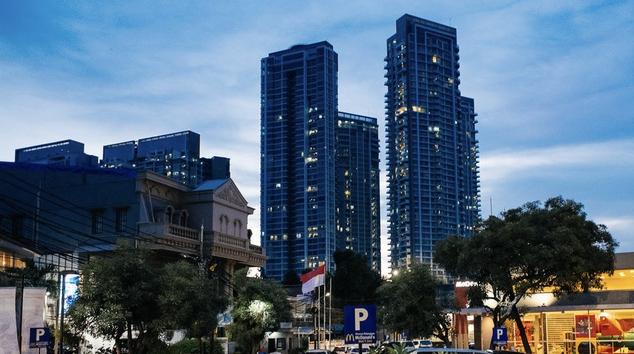
One major factor to consider when choosing which area to buy is how convenient it is to reach Central Jakarta. The closer you are to the CBD, the more expensive the cost.
Real estate prices are drastically lower in North Jakarta, which may be worth considering for investors – especially those willing and able to buy land in Indonesia.
West Jakarta
West Jakarta is largely made up of a vast area called Tangerang, which fully encompasses the international airport and numerous residential neighborhoods south of it.
Dozens of townships, such as Alam Sutera and Bintaro, dot the landscape of this sizable district, with numerous malls and dining options between them.
West Jakarta’s lower prices and potential for appreciation make it appealing for middle-class buyers and investors, although it may involve longer commutes to the city center and fewer high-end amenities.
Title Deeds and Property Transfer
Navigating the property purchase process in Jakarta involves several key steps. And things get even more complicated if you’re a foreign investor.
Firstly, obtaining a Taxpayer Identification Number (NPWP) and opening a local bank account is essential.
Engaging a reputable agent licensed by the Indonesian Real Estate Broker Association (AREBI) can help in finding a suitable property, considering factors like land certificates (SHM/HGB) and building permits (IMB).
Price negotiation and terms are subject to approval from the local community leader (RT/RW).
Signing a Letter of Intent (LOI) and paying a deposit, typically 10% of the price, is followed by appointing a notary to prepare the Sale and Purchase Agreement (Akta Jual Beli). Due diligence is crucial to verify ownership and legal status.
Upon signing the Sale and Purchase Agreement and paying the down payment (usually 20-30%), applicable taxes (BPHTB) and fees must be paid.
The transfer of ownership is completed at the Land Deed Official (PPAT), and the property is registered at the local Land Office (BPN).
Foreign buyers face extra complexities, as they can only obtain a Indonesian leasehold titles such as Hak Pakai (Right to Use) for up to 70 years. Working with reputable real estate agents and property developers is highly recommended to ensure a smooth transaction.
Rental Yields and Taxes in Jakarta
Jakarta offers a vibrant, cosmopolitan experience with diverse cultures, delicious cuisine, and a mix of modern and traditional elements.
The city’s cost of living is relatively affordable compared to other major Asian cities, though higher than the Indonesian average.
Rental yields in Jakarta are generally above 5%, which is relatively high compared to other major cities in the region.
The highest yields tend to be in dense areas close to public transport, amenities, business districts, universities, and tourist attractions.
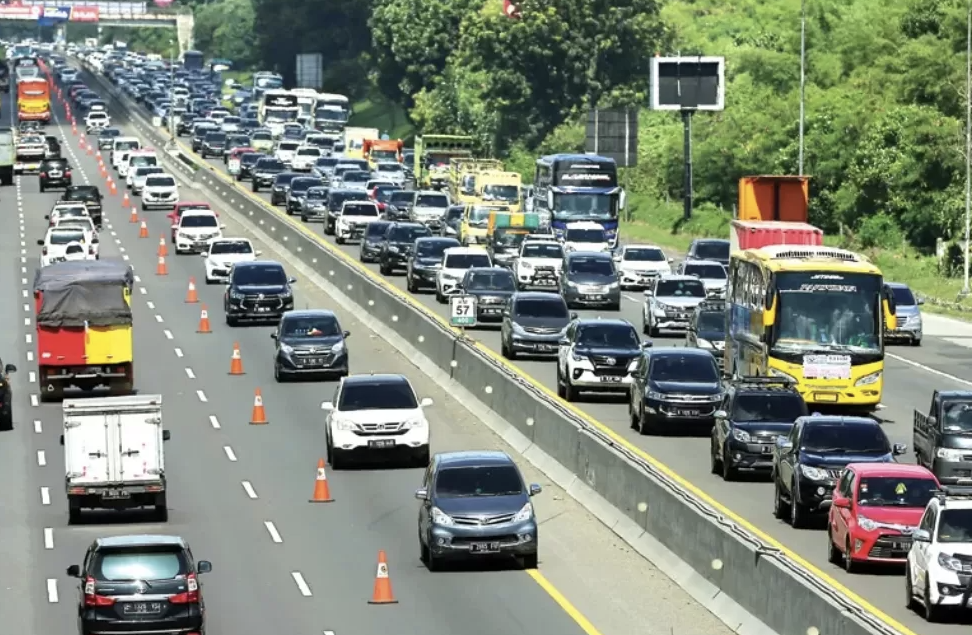
To save on property costs, buying property in the suburbs is an option. Yet it comes with longer commute time and heavy traffic which can be a deal breaker.
Short-term rentals (e.g., Airbnb) are popular in areas like South Jakarta (Kemang, Senopati, Kuningan) and Central Jakarta (Sudirman, Thamrin).
With around 6,000 active Airbnb listings, an average daily rate of $41, and an occupancy rate of 39%, there is potential for generating additional income, particularly during peak seasons and events.
Rental income in Jakarta is taxed at a flat rate of 20%, which is relatively favorable compared to other countries in the region.
However, annual property taxes based on the government’s assessed value, ranging from 0.1% to 0.3% depending on the property price, should also be considered.
Pros and Cons of Buying Property in Jakarta
Especially if you’re a foreigner, buying property in Jakarta has its pros and cons.
On the positive side, Jakarta offers a relatively stable property market with potential for steady appreciation, supported by the city’s economic growth and increasing FDI levels.
Property prices are reasonable compared to other major Asian cities, offering good value for money and the potential for strong capital gains.
The city’s large population, growing middle class, and thriving business environment drive demand for residential and commercial properties.
Buying property allows for potential long-term appreciation and building equity, rather than paying rent.
However, there are also some drawbacks to consider. Foreign ownership restrictions and the complex buying process can pose challenges and limits for international investors.
Jakarta meanwhile faces issues like traffic congestion, air pollution, flooding, and seismic risks, which can impact quality of life and property values.
Cultural differences, language issues, and Indonesian bureaucracy can complicate property transactions and management.
Is Investing in Jakarta Real Estate a Good Idea?
Ultimately, Jakarta offers attractive opportunities for those seeking relatively high rental yields and potential for steady capital appreciation.
However, as with any major investment, thorough research and clear goals are the key to making a successful property purchase in Jakarta.
When considering investing in Jakarta, it’s important to compare it with other potential markets in the region and beyond.
Nearby cities like Surabaya and Bandung, as well as other Southeast Asian capitals like Bangkok and Manila, may offer compelling alternatives depending on priorities and risk appetite.
To conclude though, buying real estate in Jakarta can be a rewarding venture for those drawn to the city’s ongoing population growth and long-term investment potential.
FAQs: Property in Jakarta
Can Foreigners Own Property in Indonesia?
Foreigners are currently unable to own freehold property in Indonesia under their own name. The best they can get is a 70-year leasehold title, which is essentially a right-to-use (Hak Pakai or SHP) rather than true ownership.
These leasehold titles are initially granted for 25 years and can be extended for another 45 years. While the government has been gradually making the system more foreigner-friendly, such as increasing the extension period from 20 to 45 years in 2016, there are still significant restrictions on foreign ownership.
How Much Does Real Estate in Jakarta Cost?
Property prices in Jakarta vary widely depending on the location, type of property, and other factors. However, compared to other major cities in the region, Jakarta real estate is relatively affordable. Rental returns in the capital commonly exceed 5% per year, which is among the highest in Asia.
Where is the Most Expensive Area of Jakarta?
As Indonesia's capital and largest city, Jakarta has a diverse range of neighborhoods with varying price points. The most expensive areas tend to be in South Jakarta, which provides easy access to downtown, more space, less traffic, and more restaurants and stores.
Neighborhoods like Kebayoran Baru, Kuningan, and Kemang are popular with wealthy locals and expats. Kebayoran Baru is one of the largest and most convenient as it straddles Central Jakarta. Kuningan is closest to the CBD with tree-lined streets and villas. Kemang offers lower prices and numerous amenities, although it's less convenient.
Are Foreigners Able to Buy Land in Indonesia?
No, foreigners cannot directly own freehold land in Indonesia. The only type of land title available to non-Indonesians is the right-to-use (Hak Pakai or SHP), which is essentially a leasehold rather than true ownership.
These leasehold titles have a maximum duration of 70 years, with an initial term of 25 years and the possibility of a 45-year extension. Freehold titles, known as Hak Milik (SHM), can only be held by Indonesian citizens.
How Much Are Rental Yields in Jakarta?
Jakarta boasts some of the highest rental yields in Asia, with returns commonly exceeding 5% per year. This is significantly higher than in more mature markets like Singapore or Hong Kong, where yields are typically in the 2-3% range.
This mix of relatively affordable prices and strong rental demand from a large and growing population makes Jakarta an attractive option for investors seeking steady cash flow. However, it's important to note that the legal restrictions on foreign ownership can make it difficult for non-Indonesians to fully capitalize on these opportunities.

